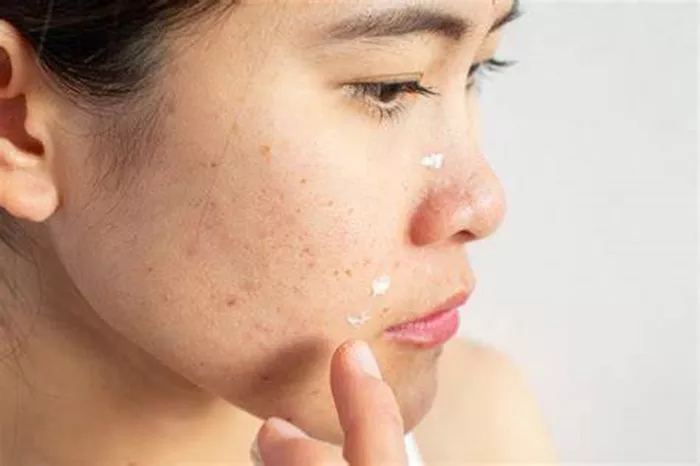Acne is a common skin condition that affects millions of people worldwide. Characterized by the presence of pimples, blackheads, and cysts, acne can be both physically and emotionally distressing. For those with acne-prone skin, selecting the right skincare products is crucial to managing breakouts and maintaining a healthy complexion. This article explores the best skincare products for acne-prone skin, detailing their ingredients, benefits, and how to incorporate them into a skincare routine.
Acne-Prone Skin
Before diving into product recommendations, it’s essential to understand what acne-prone skin is. Acne occurs when hair follicles become clogged with oil and dead skin cells. This can lead to the proliferation of bacteria, resulting in inflammation and the formation of pimples. Factors contributing to acne include hormonal fluctuations, stress, diet, and genetics. People with acne-prone skin often experience excessive oiliness, sensitivity, and the presence of active breakouts. Therefore, it’s important to choose products that not only target acne but also maintain skin hydration and barrier function.
Key Ingredients for Acne-Prone Skin
When selecting skincare products for acne-prone skin, look for specific ingredients known for their effectiveness in treating and preventing breakouts:
1. Salicylic Acid: A beta hydroxy acid (BHA) that penetrates the pores to dissolve excess oil and dead skin cells. It helps to reduce inflammation and prevent clogged pores.
2. Benzoyl Peroxide: This ingredient kills acne-causing bacteria and helps to reduce inflammation. It is particularly effective for treating active breakouts.
3. Retinoids: These vitamin A derivatives promote cell turnover, helping to prevent clogged pores and reduce the appearance of acne scars.
4. Niacinamide: A form of vitamin B3 that helps to reduce inflammation, regulate oil production, and improve skin texture.
5. Hyaluronic Acid: A powerful humectant that hydrates the skin without clogging pores, making it ideal for acne-prone individuals who may also experience dryness.
6. Azelaic Acid: Known for its anti-inflammatory properties, azelaic acid helps to reduce redness and the appearance of acne while promoting even skin tone.
7. Tea Tree Oil: A natural antiseptic that can help to reduce acne-causing bacteria and soothe inflammation.
The Best Skincare Products for Acne-Prone Skin
1. Cleansers
Cleansing is the first step in any skincare routine, especially for acne-prone skin. A gentle yet effective cleanser can help remove excess oil, dirt, and makeup without stripping the skin of its natural moisture.
CeraVe Foaming Facial Cleanser: Formulated with ceramides and niacinamide, this cleanser effectively removes dirt and oil while maintaining the skin’s protective barrier. Its foaming action helps to cleanse without overdrying.
Neutrogena Oil-Free Acne Wash: This gel cleanser contains salicylic acid to help clear breakouts while preventing new ones from forming. Its oil-free formula is suitable for daily use.
Cetaphil Gentle Skin Cleanser: Ideal for sensitive skin, this non-irritating cleanser removes impurities without disrupting the skin’s moisture barrier.
2. Exfoliants
Regular exfoliation is vital for acne-prone skin to prevent clogged pores. However, it’s important to choose gentle exfoliants that won’t irritate the skin.
Paula’s Choice Skin Perfecting 2% BHA Liquid Exfoliant: This leave-on exfoliant contains salicylic acid, which penetrates pores to clear out excess oil and dead skin cells, resulting in smoother skin.
The Ordinary Lactic Acid 5% + HA: A gentle exfoliating serum that helps to improve skin texture and brightness while promoting cell turnover.
See Also: When to Start Using Anti-Aging Skin Care Products?
3. Spot Treatments
For targeted treatment of active breakouts, spot treatments can be highly effective.
Mario Badescu Drying Lotion: This iconic spot treatment contains salicylic acid, sulfur, and zinc oxide to dry out pimples overnight.
Differin Gel (Adapalene): An over-the-counter retinoid that helps to clear existing acne and prevent future breakouts by promoting cell turnover.
4. Moisturizers
Many people with acne-prone skin avoid moisturizers, fearing they will exacerbate breakouts. However, using a non-comedogenic moisturizer is crucial for maintaining hydration.
CeraVe PM Facial Moisturizing Lotion: Lightweight and oil-free, this moisturizer contains ceramides and niacinamide to hydrate the skin while restoring the protective barrier.
Neutrogena Hydro Boost Gel-Cream: Formulated with hyaluronic acid, this gel-cream provides intense hydration without clogging pores.
5. Sunscreens
Sunscreen is an essential part of any skincare routine, including for those with acne-prone skin. Look for oil-free, non-comedogenic formulas.
EltaMD UV Clear Broad-Spectrum SPF 46: This lightweight sunscreen contains niacinamide and is designed for sensitive and acne-prone skin, providing protection without causing breakouts.
La Roche-Posay Anthelios Clear Skin Oil-Free Sunscreen: This sunscreen is specifically formulated for oily and acne-prone skin, offering broad-spectrum protection while absorbing excess oil.
6. Treatments
In addition to daily skincare products, consider incorporating treatments designed to address specific concerns related to acne.
The Ordinary Niacinamide 10% + Zinc 1%: This serum helps to reduce the appearance of blemishes and regulate oil production, making it ideal for acne-prone skin.
SkinCeuticals Blemish + Age Defense: A targeted serum that combines salicylic acid, glycolic acid, and niacinamide to address both acne and signs of aging.
7. Masks
Incorporating masks into your skincare routine can provide additional benefits for acne-prone skin.
Origins Clear Improvement Active Charcoal Mask: This mask uses charcoal to draw out impurities and excess oil, helping to clear pores and reduce breakouts.
Innisfree Super Volcanic Pore Clay Mask: Formulated with volcanic ash, this clay mask helps to absorb excess oil and unclog pores, leaving skin feeling fresh and clean.
8. Professional Treatments
For persistent or severe acne, professional treatments may be necessary. Options include:
Chemical Peels: Performed by dermatologists, chemical peels use acids to exfoliate the skin and improve texture while reducing breakouts.
Laser Therapy: Certain laser treatments can target acne-causing bacteria and reduce inflammation, leading to clearer skin.
Prescription Medications: For more severe cases, dermatologists may prescribe oral medications such as antibiotics or hormonal treatments.
Building a Skincare Routine for Acne-Prone Skin
Creating an effective skincare routine for acne-prone skin involves several key steps:
1. Cleansing: Start with a gentle cleanser to remove impurities without stripping the skin.
2. Exfoliation: Use a chemical exfoliant a few times a week to prevent clogged pores.
3. Treatment: Apply targeted treatments for active breakouts or to address specific concerns.
4. Moisturizing: Follow up with a lightweight, non-comedogenic moisturizer to maintain hydration.
5. Sun Protection: Always apply sunscreen during the day to protect the skin from UV damage.
6. Night Care: At night, consider incorporating retinoids or other treatment products to promote healing and prevent future breakouts.
Conclusion
Finding the best skincare products for acne-prone skin can be a journey of trial and error. By focusing on gentle, effective ingredients and maintaining a consistent skincare routine, individuals with acne-prone skin can achieve clearer, healthier skin. Remember to consult with a dermatologist for personalized recommendations and to address any persistent concerns. With the right products and care, managing acne is possible, leading to improved skin confidence and overall well-being.
[inline_related_posts title=”You Might Be Interested In” title_align=”left” style=”list” number=”6″ align=”none” ids=”11217,5592,12098″ by=”categories” orderby=”rand” order=”DESC” hide_thumb=”no” thumb_right=”no” views=”no” date=”yes” grid_columns=”2″ post_type=”” tax=””]


































